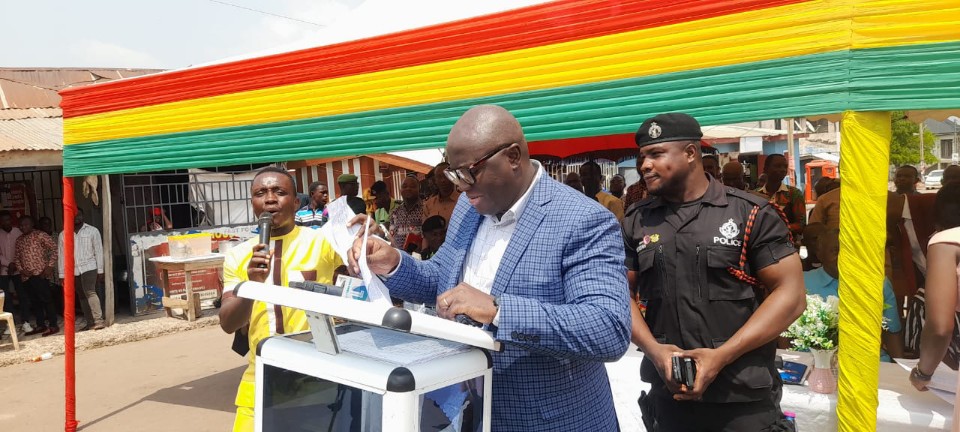Uphold ethical standards in election reporting – Journalists urged


The United Nations Educational, Scientific and Cultural Organisation (UNESCO) Representative to Ghana, Edmond Moukala, has urged journalists to uphold ethical standards in election reporting in order to sustain the country’s democracy.
Advertisement
“Your mandate in covering elections is vital to the functioning of democracy. In this age, your responsibility is amplified, as you must navigate a complex and rapidly changing landscape,” he said.
Mr Moukala said this when he addressed the closing ceremony of a two-day training programme for journalists on election reporting organised by UNESCO in Accra last Thursday.
A similar training will be held for journalists in Kumasi and Tamale this week. It was on the topic: “Elections in Digital Age: Countering hate speech, misinformation on Social Media Platforms for Peaceful Election”.
Ethical journalism
Delivering his address, Mr Moukala emphasised the importance of ethical journalism in the upcoming elections, and observed that the training was timely, given the critical role the media played in shaping public discourse during elections.
“In a few months, Ghana will be going to the polls, and this is where the capacity development you have received in these two days will be tested, particularly on how you will navigate your acquired skills in shaping the responses of the political temperature associated with elections,” he said.
He said the landscape of journalism had evolved rapidly with the advent of digital technology, and therefore, urged journalists to be clothed with accurate reporting towards equitable justice for all manner of people.
This, he said, aligned with Sustainable Development Goal 16, which sought to, “promote peaceful and inclusive societies for sustainable development, provide access to justice for all, and build effective, accountable, and inclusive institutions at all levels,” adding that, “It also meets Goal 11 of the African Union Agenda 2063: “The Africa We Want.”
Mr Moukala said the digital revolution occasioned by social media platforms and the internet had brought in its wake a sharp change regarding the speed and scope of news reporting, especially for journalists covering elections, which presented both enormous opportunities and daring challenges.
“In a competitive media marketplace, especially in an era of digital drive, I anticipate the immense urge of media practitioners wanting to be the first to break the news. However, this must not cost us; such pursuits must be accountable, unwavering, balanced and fact-checked, quoting the requisite data source,” he stated.
Trainers
A former Rector of the Ghana Institute of Journalism (GIJ), and now Head of Department of Liberal Arts and Communication Studies, Ghana Institute of Management and Public Administration (GIMPA), Dr Wilberforce Dzisah; a lecturer at the Department of Communications Studies at the University of Ghana, Dr Aurelia Ayisi, and a fact checker at Media Foundation for West Africa, Kwaku Krobea Asante, took the participants through the various topics at the training.





